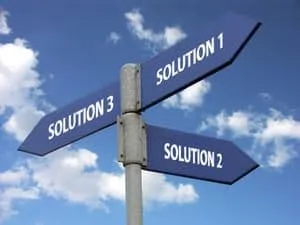Natural Consequences

NATURAL CONSEQUENCES©
“Natural Consequences” are the results of one’s thoughts and behaviors. Therefore, it is important to maintain continual control of one’s thoughts and behaviors by Identifying current negative consequences and discontinuing the thinking/behaviors that led to them, as well as anticipating and considering natural consequences of planned actions.
It is imperative that we avoid “rescuing” others from experiencing the natural consequences of their own thinking and behaviors. We all learn from natural consequences. If we Rescue others from the natural consequences of their own thoughts and behaviors, we teach them that our Rescue is the natural consequence. Thus, we reinforce in the other that their thoughts and behaviors will lead to us taking care of the problem.
One of the Once Productive Childhood Beliefs (OPCB) that we learn as children and that reinforces “rescuing” is “Always be kind and help others.” As a child, we don’t possess the capacity for abstract thinking so we take the values and beliefs that we learn as concrete examples of appropriate behavior. We don’t realize that the value is one that we model our behavior after, not one that we follow to the letter. It would be impossible to follow it to the letter, if we wanted to maintain some semblance of our own identity. For example, I want to help my spouse (child, friend, relative, etc.) to the best of my ability so their life will be as comfortable as possible (and, maybe, that they will appreciate everything I do for them). This is a slippery slope!
I love my spouse! But what if she has a spending problem and tends to rack up bills and maxing out her credit cards. I understand this but I want to help her get back on track. I pay off her credit cards. What have I done? By paying off her credit cards, I have added an intervening Natural Consequence into her list of Natural Consequences of not managing her money properly and relying on her credit cards. That step is that I become the final step in that series of thoughts and behaviors that leads to maxing out her credit cards. I have taught her nothing, other than it is okay to max out her credit cards. It will continue happening and happen more often. Once I rescue her just one time, I have now reinforced in myself that I will more easily rescue her, again, and I have now reinforced in her that it is natural and “normal” for me to rescue her from the consequences of her own actions.
A common complaint that I hear from some parents is that their adult child will not get a job or strike out on their own. “All they do is sit around the house, playing video games and watching movies all night and sleeping during the day,” they say. They do not understand why the child will not move on. I say, look at the Natural Consequences you, the parent, have taught them. That they will not get a job and/or move out is because you have taught them that they can live with you for free for however long they want. You have rescued them from the consequences of their own actions. One simple Once Productive Childhood Belief that might have contributed to that is, “He is my child and I must give him everything he needs in life to be comfortable and I will also give him the things that I wanted, as a child, but did not get. Then he will appreciate me like I imagine I would have appreciated my parents, and he will love and thank me more and move on with his life.” That would be great! Unfortunately, that OPCB has resulted in the child being increasingly dependent on me, rather than being increasingly dependent on him or herself.
There are countless examples. The point is to consciously focus on potential consequences and avoid the experience of rescuing others from their own thoughts and behaviors.
How to change the Natural Consequences once you realize what has happened? Start saying no! In a way you think the other will be receptive. Don’t blow up in your head and then project that onto the one you have been rescuing. You will only increase your guilt and the likelihood that you will continue the rescuing, as you realize you are overreacting. It’s good to feel the feelings but project them in a way your goal (to stop rescuing) will be met. Say it in a way you think the other will be receptive. The further along you are in your rescuing behavior of the other, the more intense will be their response (even if you say it in the best way you can) but their response and your tendency to feel guilty will reinforce that you are now stopping a rescuing behavior . As you feel the guilt and the urge to say you are sorry and to continue the rescuing, think of the OPCB that led you to this place. Begin analyzing it and looking at it from an adult perspective. Realize that no matter how much you love and want to help this person that maybe the best that you can do for them is to let them learn from the consequences of their own thoughts and behaviors.
t